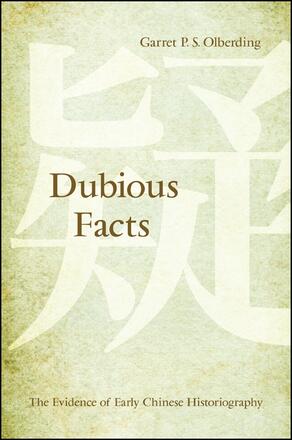
Dubious Facts
The Evidence of Early Chinese Historiography
Alternative formats available from:
An innovative approach to historical records assesses how evidence claims and policy arguments were put forth in the royal courts of early China.
Description
What were the intentions of early China's historians? Modern readers must contend with the tension between the narrators' moralizing commentary and their description of events. Although these historians had notions of evidence, it is not clear to what extent they valued what contemporary scholars would deem "hard" facts. Offering an innovative approach to premodern historical documents, Garret P. S. Olberding argues that the speeches of court advisors reveal subtle strategies of information management in the early monarchic context. Olberding focuses on those addresses concerning military campaigns where evidence would be important in guiding immediate social and political policy. His analysis reveals the sophisticated conventions that governed the imperial advisor's logic and suasion in critical state discussions, which were specifically intended to counter anticipated doubts. Dubious Facts illuminates both the decision-making processes that informed early Chinese military campaigns and the historical records that represent them.
Garret P. S. Olberding is Assistant Professor of History at the University of Oklahoma.
Reviews
"…[a] remarkable contribution to the historical study of the Han period in particular, and to the Chinese historiographical tradition in general. " — Monumenta Serica
"This is an extraordinarily rich and insightful book that greatly contributes to our understanding and appreciation of these issues in the study of traditional court memorials and addresses and of the traditional historical accounts of them. Importantly, this book clears up many long-standing misconceptions about the conception and role of fact and evidence in these court memorials and offers the makings of a master key for understanding and interpreting them on a wide range of issues. " — Philosophy East & West